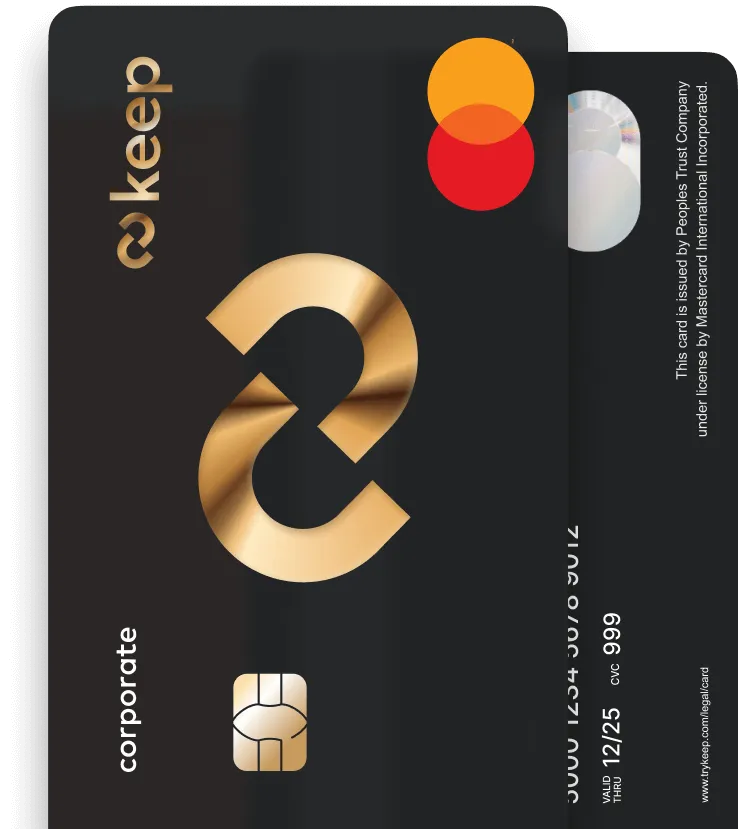What is a Personal Expense?
Money matters touch every aspect of our daily lives, from the essential bills we pay to the small purchases that bring us joy. These personal costs, which are separate from any business-related expenses, come straight from our hard-earned paychecks and savings accounts. Getting a handle on these everyday expenses does more than just keep our bank accounts in order. When we master the art of managing our personal spending, we build a strong foundation for our financial well-being. Whether saving for retirement, planning for a dream vacation, or simply maintaining a comfortable lifestyle, the way we handle our daily expenses shapes our financial present and future.

Essential Components of Personal Expenses and Daily Living Costs
The landscape of personal expenses is diverse and multifaceted, touching every aspect of our daily lives. Essential living expenses constitute the core of our financial obligations, representing the basic costs necessary for maintaining our standard of living. These fundamental expenses demand careful attention and often consume the largest portion of our monthly budget.
Housing costs typically represent the most significant essential expense for most individuals. This category extends beyond basic rent or mortgage payments to include various related costs that maintain a comfortable living space. The complexity of housing expenses requires careful consideration and planning to ensure sustainable financial management.
Transportation and healthcare form another crucial component of essential expenses. While transportation needs vary significantly based on location and lifestyle, healthcare expenses remain a constant consideration for maintaining well-being and financial security.
- Rent or mortgage payments
- Property taxes and insurance
- Utilities (electricity, water, gas)
- Basic home maintenance
- Groceries and household supplies
- Healthcare premiums and medications
- Transportation costs
- Basic clothing needs
Managing Discretionary Spending and Lifestyle Choices
Discretionary expenses represent the more flexible aspect of personal spending, encompassing costs that enhance our quality of life without being strictly necessary for survival. These expenses often reflect our personal values, interests, and lifestyle choices. Understanding and managing discretionary spending becomes crucial for maintaining financial balance while enjoying life's pleasures.
The key to managing discretionary expenses lies in finding the right balance between enjoyment and financial responsibility. This balance varies for each individual based on their income, financial goals, and personal priorities. Creating a sustainable approach to discretionary spending ensures long-term financial health while maintaining life satisfaction.
Smart management of discretionary expenses often involves making conscious choices about which non-essential items truly add value to our lives. This process requires regular evaluation and adjustment of spending patterns to align with both current circumstances and future goals.
Strategic Debt Management and Payment Planning
Debt management represents a critical component of personal finance that requires careful attention and strategic planning. Different types of debt carry varying implications for our financial health, and understanding these differences helps in developing effective repayment strategies.
Creating a structured approach to debt repayment involves prioritizing different types of debt based on interest rates and terms. High-interest debt, such as credit card balances, often demands immediate attention to minimize the long-term financial impact. Student loans and mortgages, while significant, typically carry lower interest rates and may benefit from different repayment strategies.
The psychological impact of debt management cannot be overlooked. Maintaining a clear view of debt obligations and progress toward repayment goals helps reduce financial stress and maintains motivation for continued fiscal responsibility.
Investment Strategies and Long-term Financial Planning
Investment planning forms a crucial bridge between current financial management and future financial security. While not an immediate expense, regular investment contributions should be treated as a fundamental part of personal financial planning. The approach to investments should be systematic and aligned with both short-term and long-term financial objectives.
- Establish an emergency fund covering 3-6 months of essential expenses.
- Maximize contributions to retirement accounts based on employer matching programs.
- Diversify investments across different asset classes to manage risk.
- Review and rebalance investment portfolios regularly to maintain desired asset allocation.
- Consider tax implications when making investment decisions.
Effective Expense Tracking and Budget Optimization
Tracking expenses serves as the foundation for all successful financial planning. This process involves more than simply recording transactions; it requires understanding spending patterns, identifying areas for improvement, and making informed decisions about resource allocation.
Modern technology offers numerous tools and applications that simplify expense tracking. These digital solutions provide real-time insights into spending patterns and help maintain accountability for financial decisions. However, the tool itself matters less than the consistent habit of monitoring and analyzing expenses.
Regular review and adjustment of tracking methods ensure that the system remains effective and relevant to changing financial circumstances. This ongoing process helps identify both problems and opportunities in personal finance management.
Life Stage Financial Planning and Adaptation
Financial needs and priorities evolve significantly across different life stages, requiring regular adaptation of expense management strategies. Young professionals face different financial challenges than established families or retirees, necessitating flexible approaches to expense management.
The transition between life stages often brings significant changes to both income and expenses. Planning for these transitions helps maintain financial stability during periods of change. This planning involves anticipating future needs while maintaining current financial responsibilities.
Understanding the typical financial patterns and challenges of each life stage allows for more effective long-term planning. This knowledge helps in preparing for future expenses while maintaining current financial stability.
Building Financial Resilience Through Smart Expense Management
Financial resilience emerges from the consistent application of sound expense management principles. This resilience provides protection against unexpected financial challenges while supporting progress toward long-term goals. The development of financial resilience requires both practical skills and psychological preparation.
Creating multiple streams of income and maintaining adequate insurance coverage strengthens financial resilience. These protective measures help ensure stability during challenging times while providing opportunities for growth during favorable periods.
The practice of maintaining financial flexibility through careful expense management creates a foundation for long-term success. This flexibility allows for both taking advantage of opportunities and weathering financial challenges effectively.
Maximizing Tax Benefits Through Personal Expense Management
Understanding the tax implications of personal expenses opens opportunities for significant savings. Many individuals overlook potential tax benefits associated with certain personal expenses, particularly those related to education, healthcare, and home ownership. The careful documentation and strategic timing of these expenses can substantially reduce annual tax obligations.
Tax-advantaged accounts and deductions require proactive planning throughout the fiscal year. Healthcare spending accounts, educational expense deductions, and mortgage interest payments represent key areas where proper expense management intersects with tax benefits. Regular consultation with tax professionals helps identify additional opportunities for optimization.
Creating Sustainable Spending Habits for Long-Term Success
Developing sustainable spending habits requires a thoughtful approach to daily financial decisions. The process begins with understanding personal values and aligning spending patterns with long-term financial objectives. This alignment creates a natural framework for making conscious choices about resource allocation.
The sustainability of spending habits depends heavily on establishing realistic expectations and maintaining flexibility. Financial circumstances change over time, and spending patterns must adapt accordingly. Regular evaluation of spending decisions helps maintain this balance while supporting overall financial goals.
Technology Integration for Smart Expense Management
Modern financial management has been revolutionized by technological advancements that simplify expense tracking and analysis. The integration of digital tools into personal finance management has made it significantly easier for individuals to maintain control over their spending patterns and financial health. These technological innovations have introduced several key improvements to personal expense management:
- Mobile applications now provide real-time tracking and categorization of expenses, making financial management more accessible than ever.
- Automated bill payment systems reduce the risk of missed payments while providing detailed spending analytics for better decision-making.
- Digital receipt management solutions simplify expense documentation and make tax preparation more efficient.
- AI-powered budgeting tools analyze spending patterns and provide personalized recommendations for improvement.
- Integration between financial institutions and expense management platforms creates a comprehensive view of financial health.
Building Financial Security Through Emergency Planning
Emergency planning serves as a crucial component of comprehensive expense management. The establishment of dedicated emergency funds provides protection against unexpected financial challenges while maintaining regular expense management routines. This preparation helps prevent the disruption of long-term financial goals during difficult times.
Financial security extends beyond basic emergency savings to include appropriate insurance coverage and contingency planning. These protective measures ensure that unexpected expenses do not derail progress toward financial objectives or create long-term financial instability.
Smart Money Management Strategies That Work
The path to financial success requires consistent application of proven money management principles. Regular monitoring and adjustment of spending patterns create a foundation for lasting financial stability. These habits, combined with strategic planning and thoughtful decision-making, support the achievement of both short-term and long-term financial objectives.
Personal finance management becomes more effective when approached with clarity and purpose. Understanding the connection between daily financial choices and long-term outcomes helps maintain focus on important financial goals. The implementation of these strategies, supported by modern tools and technologies, enables individuals to maintain control over their financial future.
Small, consistent actions accumulate to create significant financial impact over time. The development of strong financial habits, combined with regular review and adjustment of strategies, supports continuous progress toward financial objectives. This practical approach to money management helps build lasting financial security while maintaining quality of life.
Sources: [1] https://www.schwab.com/financial-planning-collection/8-components-of-good-financial-plan [2] https://www.investopedia.com/financial-edge/1109/6-reasons-why-you-need-a-budget.aspx [3] https://www.meruaccounting.com/spending-habits-and-its-impact-on-plan-and-budgets/ [4] https://www.investopedia.com/terms/p/personalfinance.asp [5] https://decided.org/guide/personal-expenses-explained/ [6] https://modoras.com/business-income-for-personal-use/ [7] https://www.nerdwallet.com/article/finance/tracking-monthly-expenses [8] https://www.investopedia.com/terms/e/expense.asp [9] https://www.trykeep.com/newsroom/what-are-miscellaneous-expenses [10] https://www.lawinsider.com/dictionary/personal-expenses [11] https://www.bill.com/learning/miscellaneous-expenses

Ditch the Big 5
Apply online for a Keep Business Mastercard in just 8 minutes - with approvals in 72 hours or less.




